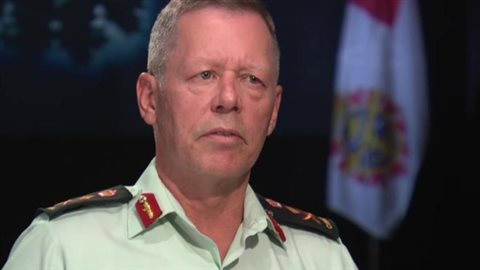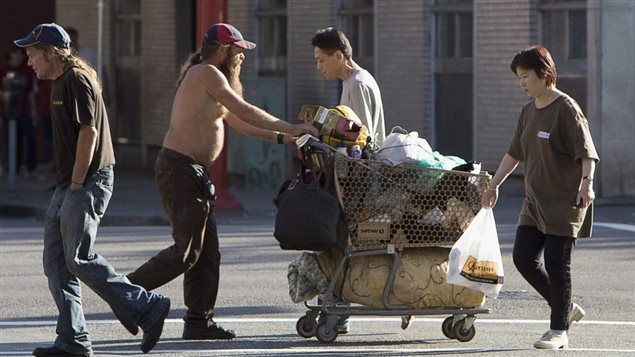For the first time a study of the homeless in Canada has added a category of former soldiers.
The study was conducted in March 2015 by the government agency, Employment and Social Development Canada and was based on 2014 statistics.
It indicated that about 2,250 people, or slightly less than three percent of Canada’s homeless, were ex-military. However many people feel the number is under-represented. In the United States which has been doing a better job of tracking their veteran homeless situation for some time, some 8.6% of their homeless are military veterans.
The information on Canada’s situation came as a result of an Access to Information request by the Canadian Press.

The study found that veterans living on the street tended to be older than others without shelter. The average age of veterans without shelter was 52, compared with 37 for the general population. It also showed veterans often became homeless about ten years after leaving the military.
Other factors also add to the concern the Canadian figures may be underestimated. The report says for example that veterans have a lesser tendency to use homeless shelters. There is also a greater tendency toward what is called “episodic homelessness”, whereby people alternate three or more times a year between having a place to stay or living on the street. The information also indicated female veterans have a high incidence of this “episodic homelessness” with 16 percent of them reporting living in such situations compared to six percent of non-veteran women.
The information also comes from a survey of only 60 homeless shelters across Canada.
Many of the veterans have been suffereing from PTSD after their service in combat. Some 40,000 Canadian soldiers saw service in Afghanistan between 2001 and 2011. In addition to, and possibly related to PTSD, many suffer alcoholism, drug addiction and mental health issues.
“It’s shocking in Canada that we would have any veteran who is homeless, but it is a sad reality,” Gen. Jonathan Vance, the country’s top military commander, said in an interview with The Canadian Press.
An independent report prepared for the government ministry, Veterans Affairs, said the department was not adequately dealing with or reacting to the increase in soldiers released from the Canadian Forces for medical reasons.
Gen. Vance has said it is important that the Forces and Veterans Affairs work together to help ex-soldiers transition to civilian life. But the report said there little evidence that improvements were being made in this area, and little coordination among various agencies and departments involved.
The previous Conservative government also closed nine regional offices of Veterans Affairs in a cost cutting effort. The new Liberal government has said it will re-open those offices.
In a related statistic, some 160 serving soldiers and reservists, male and female, have committed suicide between 2004 and 2014, compared to 138 killed in combat between 2002 and the end of Canada’s official Afghan mission in 2014
Additional information-sources







For reasons beyond our control, and for an undetermined period of time, our comment section is now closed. However, our social networks remain open to your contributions.